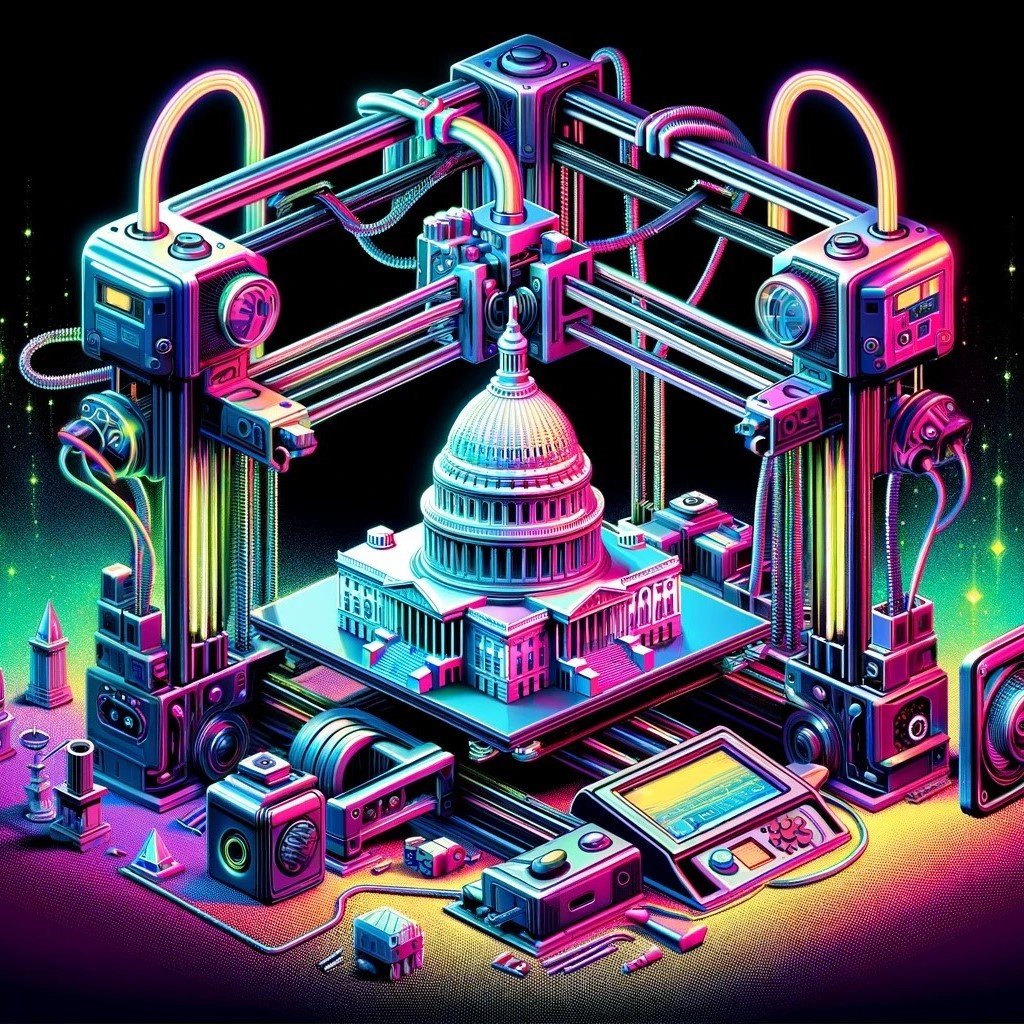House Digital Service is upgrading the House’s digital infrastructure, enabling a more accessible, transparent, and user-friendly Congress.
Why This Matters
Congress is a unique business model with myriad workflows, each presenting unique opportunities for technology solutions to boost capacity and efficiency. However, due to detailed security requirements, lengthy procurement regulations, and funding irregularity, few opportunities exist for innovative businesses to partner with Congress to build customized technology solutions to address inefficiencies. As a result, Congress’ internal technology fell behind that of the private sector and other public service workplaces. However, beginning in 2022, the House began to chart a new path for internal innovation by launching the House Digital Service (HDS). An internal innovation hub, the HDS is able to directly engage with Members and staff to create specific technology solutions to high-impact problems. Since its creation, the HDS has successfully delivered a number of tools that are boosting Congressional capacity and effectiveness.
How It Happened
CAO responded to Members’ demands (including Member Day testimonies by then Speaker of the House Kevin McCarthy [R, CA] and then Majority Leader Steny Hoyer [D, MD]) for Congress to formalize a team to build specialized tools and programs that address modern Members’ and staff’s needs. This team took shape as the House Digital Service (HDS) in January 2022. HDS is an innovative, customer- and user-experience focused, agile, in-house IT development and design team modeled after the Executive branch’s Digital Service and 18F programs. Since its launch in 2022, HDS has already addressed top Member challenges, like being double-booked in hearings and meetings.
House Digital Service Products Developed and Delivered To Date:
A Member deconflict scheduling tool: Navigating scheduling conflicts is one of a Representative’s key challenges. With limited time per week in session and multiple competing committee hearings, subcommittee hearings, and votes on the floor, Members are often forced to jump between hearings or miss them all together. To gain a better understanding of how often Member scheduling conflicts exist and work to inform committee clerks of conflicts prior to them occurring, the HDS launched the Committee Deconflict tool in 2023. Through this online portal, clerks can see noticed hearings and pre-held time slots by other committees to inform their own scheduling decisions, with the aim of deconflicting their committee members’ attendance obligations. Although conflicts are often unavoidable, the tool is helping the House collect data on scheduling trends to inform leadership’s future session calendars. This implemented recommendation #59 from ModCom.
Increasing Member access to rooms for meeting with constituents: Members and staff of the House frequently face challenges in reserving meeting rooms, often struggling with congested and convoluted processes that hamper their ability to secure spaces in a timely and efficient manner. In response to this issue, the HDS launched an improved House office building room reservation portal that provides a central, up-to-date place to reserve space for business. This implemented ModCom recommendation #162.
Modernizing the Capitol Flag Program: Each year, roughly 100,000 such flags are sent to constituents around the country. But for decades, it was difficult for Congressional staff and constituents to track flag delivery after a constituent request. Conversely, constituents had no way of knowing when the flag would arrive for important or timely occasions. To help improve this process, the HDS created “FlagTrack,” a new constituent flag portal — similar to that of a pizza tracker — for easier tracking of flags flown over the Capitol. This implemented recommendation #178 from ModCom.
The Impact
The creation of the House Digital Service was a monumental Member-driven achievement that will continue to have an immeasurable impact on the institution. By being established within a support office of the House, the HDS is able to access both its customer-base and the institution’s existing systems to craft solutions that address the root of problems while staying attuned to the end-user’s needs.
Next Steps
The work of the House Digital Service should continue to be supported and utilized to help the House continuously adapt as technology and Members’ needs evolve. As with all business units that support the House, the HDS requires funding for each project it undertakes. Its out-of-the-gate success since launching in 2022 is in great part due to the steady funding of the House Modernization Initiatives Account. The continual funding of this account, as well as reliable funding for CAO, is vital to continue the innovative work of the HDS.
Similarly, Senators should continue to advocate for the creation of Senate companion projects and teams to ensure that all of Congress is moving forward together. Another potential solution is the creation of a memorandum of understanding (MOU) between the House and Senate, allowing for any Congressionally-designed and built technology solution to be shared across the chambers. By equipping Congress with better tools, all House and Senate offices can unlock efficiencies to better serve their constituents across the country.
Glossary
ADA = Americans with Disabilities Act
AOC = Architect of the Capitol
CHA = Committee on House Administration
CAO = House Chief Administrative Officer
CDTF = Congressional Data Task Force
COLA = Cost-of-Living Adjustment
CPF = Community Project Funding
CR = Continuing Resolution
GAO = Government Accountability Office
GAO STAA = The Government Accountability Office’s Science, Technology Assessment, and Analytics team
GenAI = Generative Artificial Intelligence
HIRO = House Intern Resource Office
HDS = House Digital Service
LIS = Legislative Information Service
LLM = Large Language Model
MIA = Modernization Initiatives Account
ModCom = The House Select Committee on the Modernization of Congress
ModSub = Subcommittee on Modernization (ModSub) within the Committee on House Administration
MOU = Memorandum of Understanding
NMO = New Member Orientation
OCWR = Office of Congressional Workplace Rights

